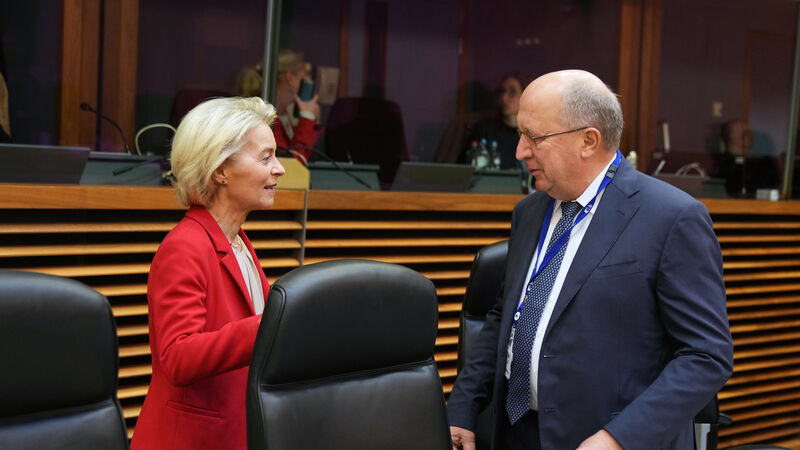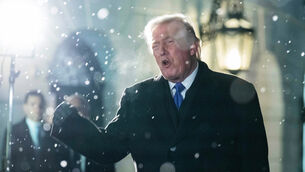European Union votes to deepen defence industry ties with Ukraine

European Commission President Ursula von der Leyen speaks to European commissioner for defence and space Andrius Kubilius Picture: Virginia Mayo/AP
European Union legislators voted on Tuesday to deepen integration of the bloc’s defence industry with Ukraineas US peace plan talks continue and Russia’s unconventional warfare operations rattle the 27-nation bloc.
Members of the European Parliament voted 457-148, with 33 abstentions, to approve a €1.5-billion programme, with €300 million slated for the Ukraine Support Instrument.











